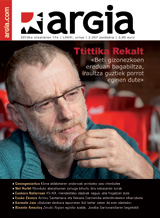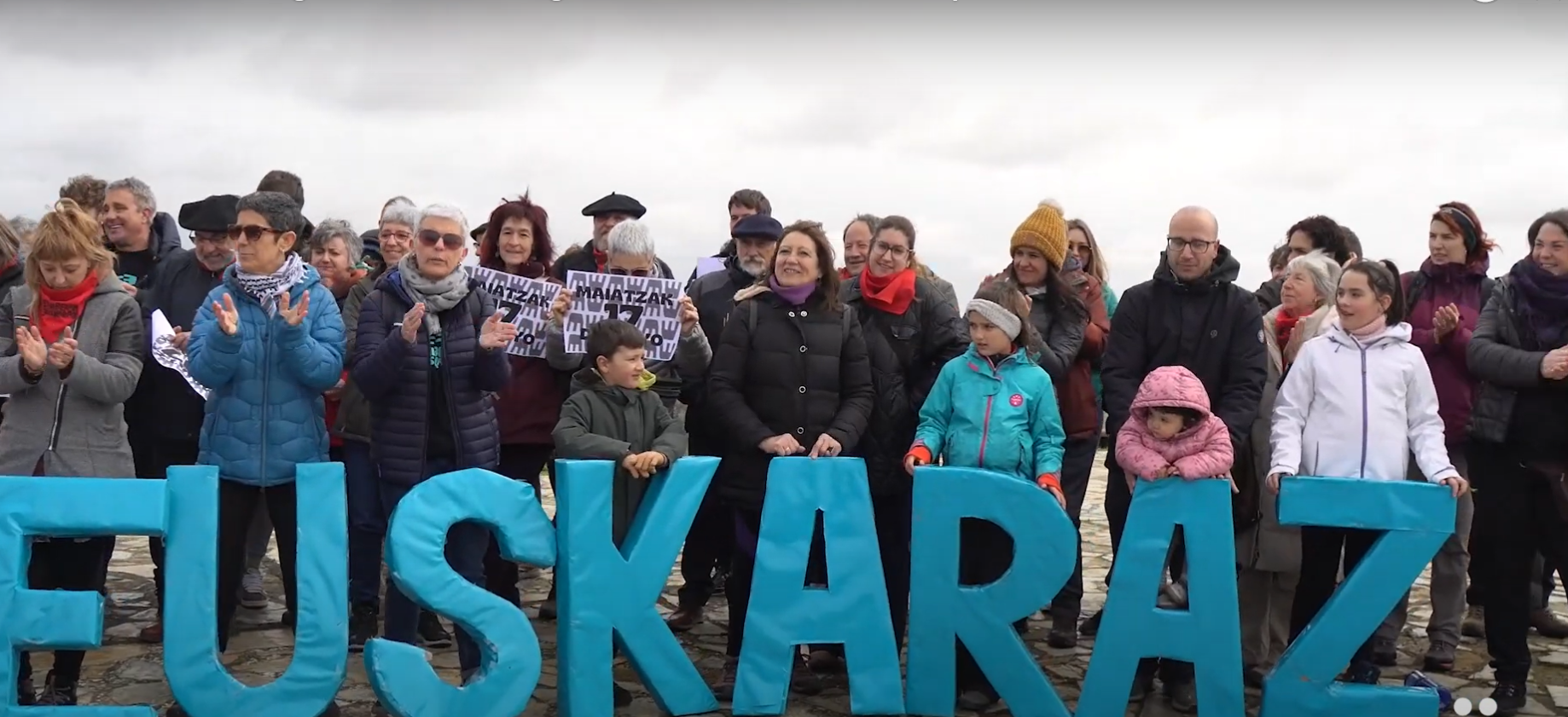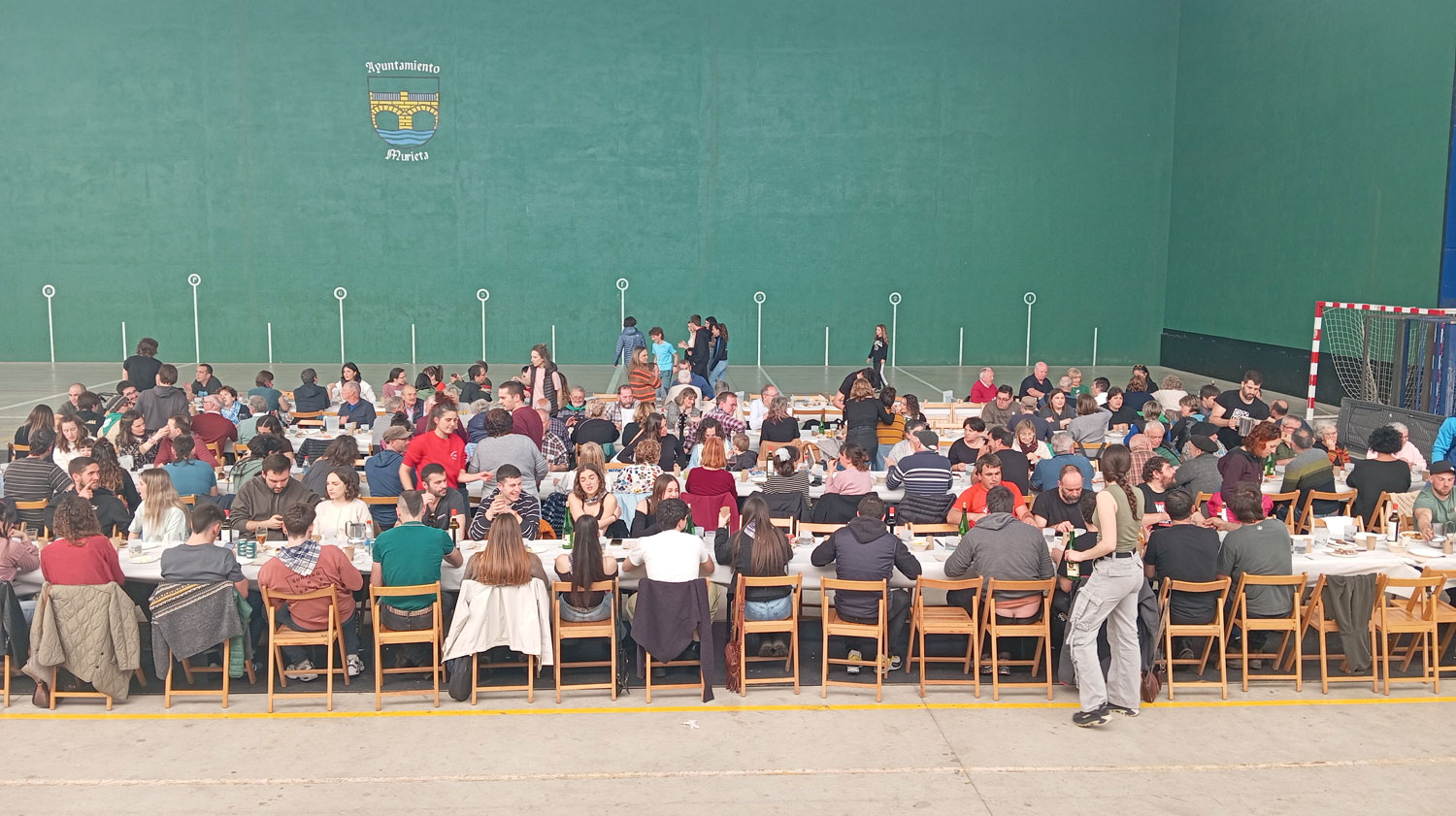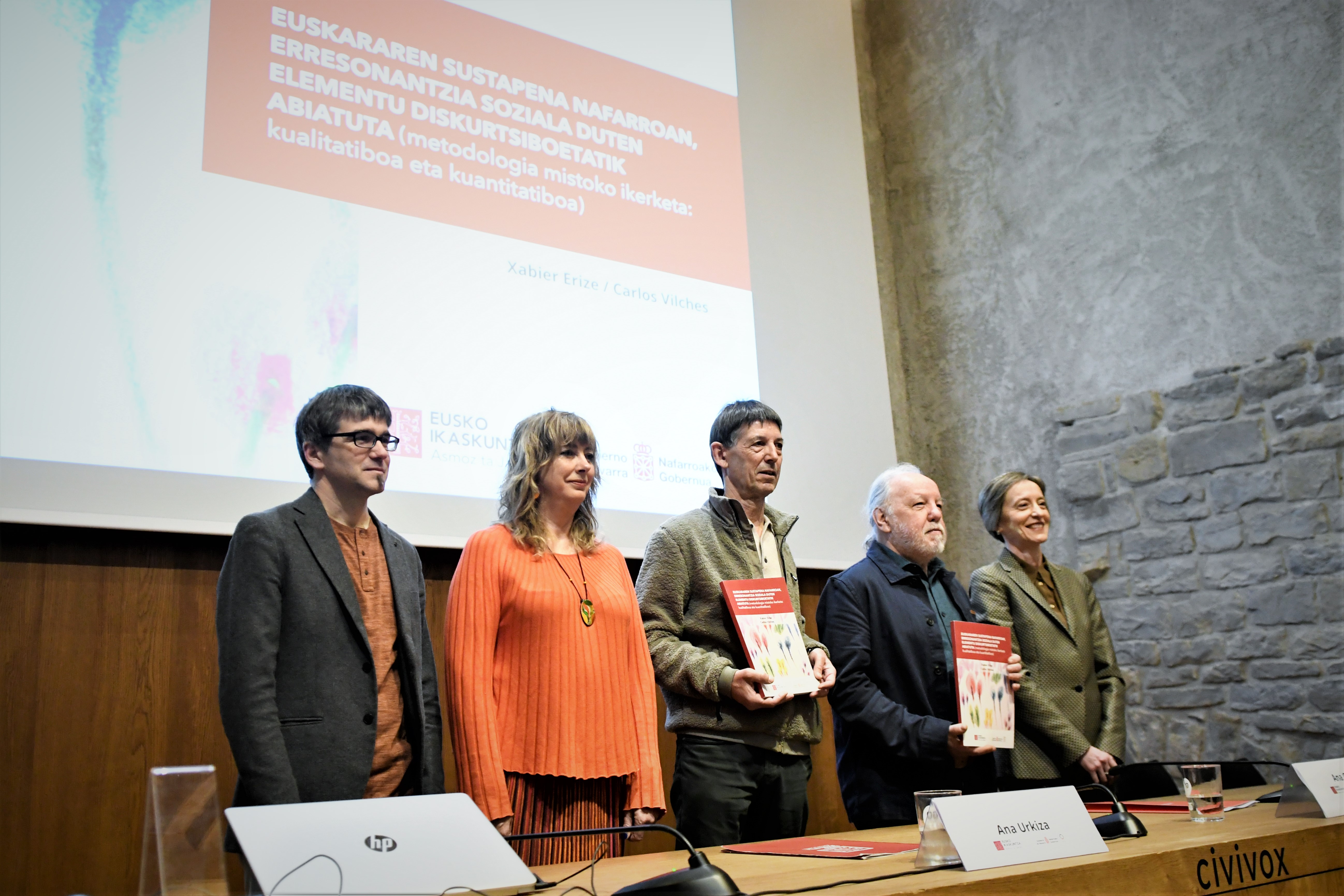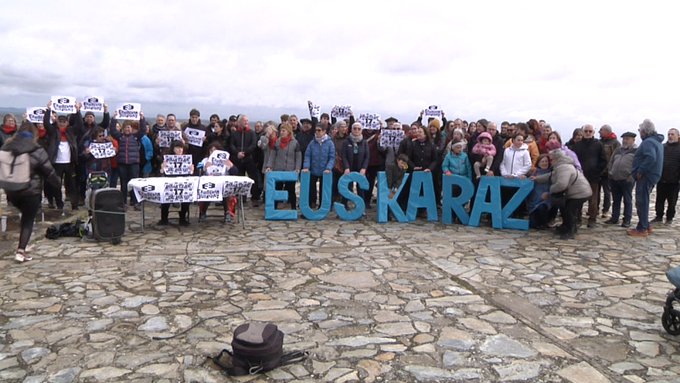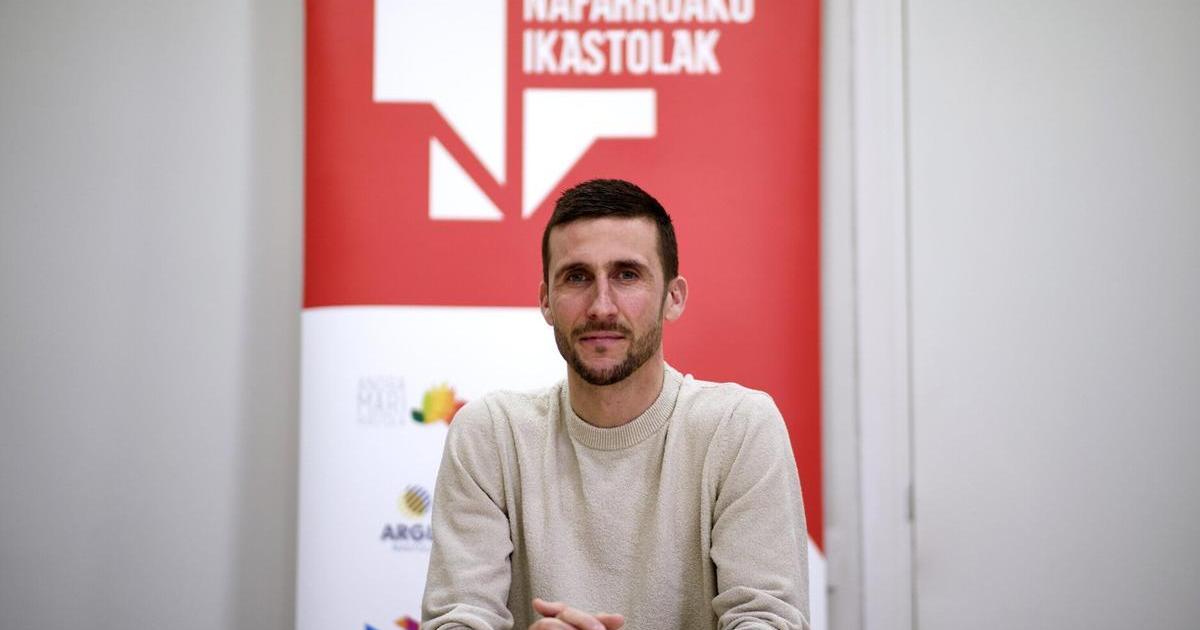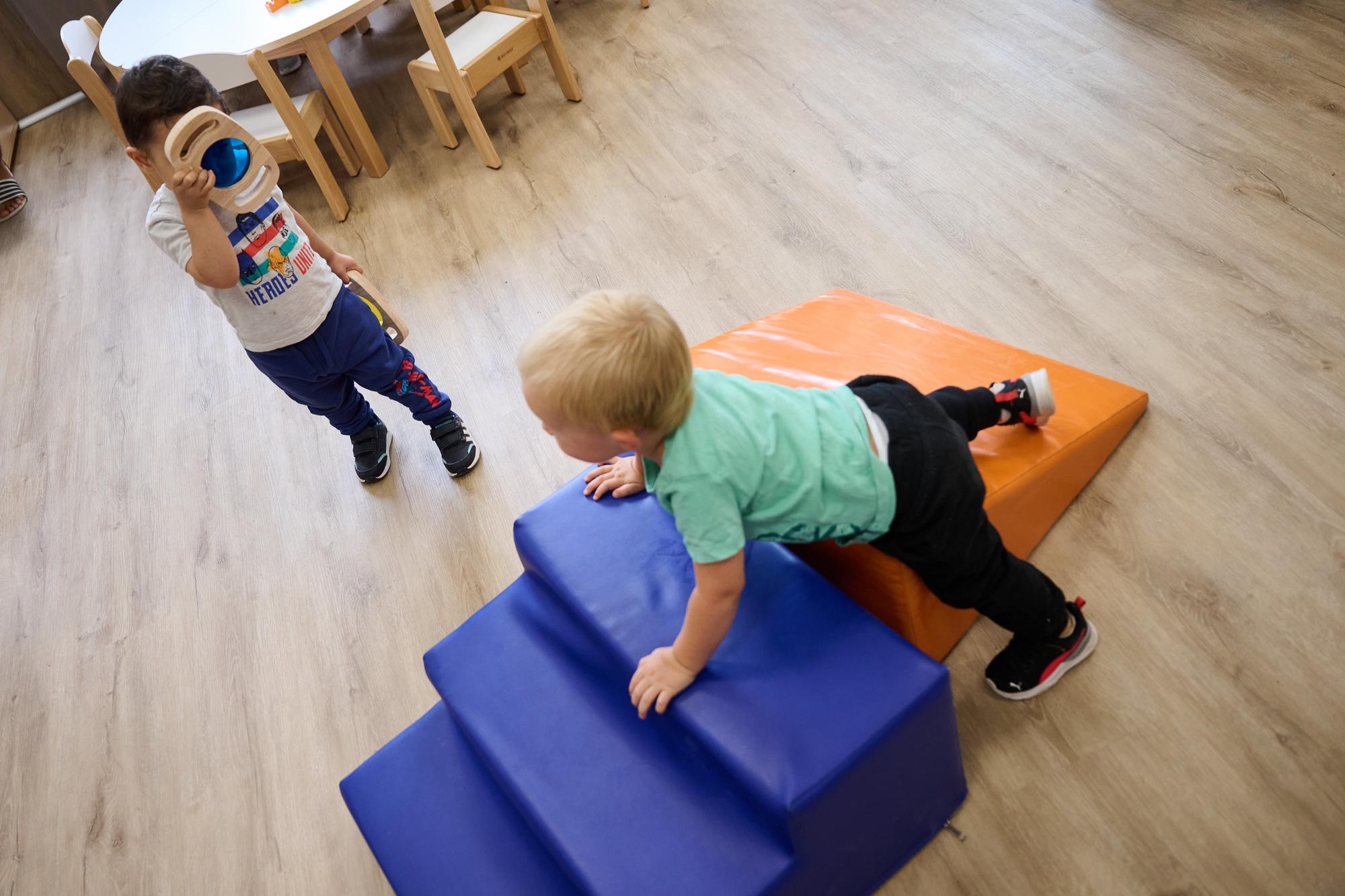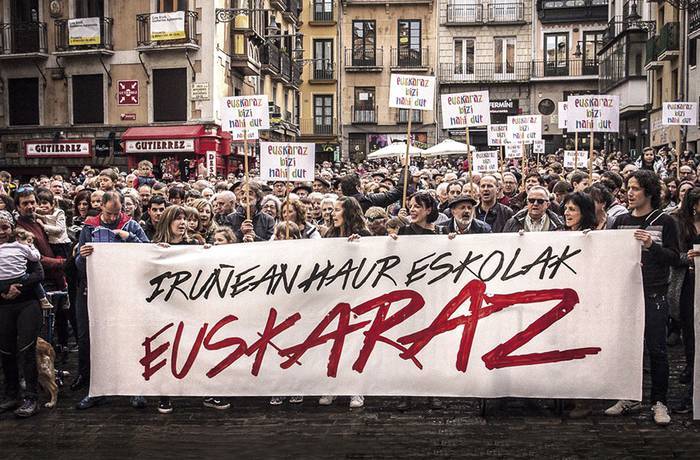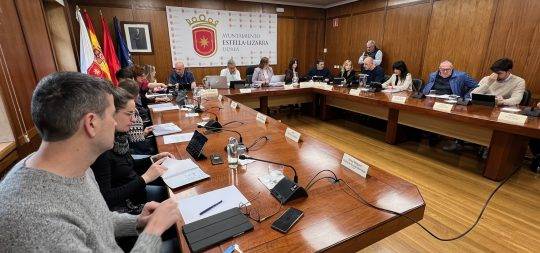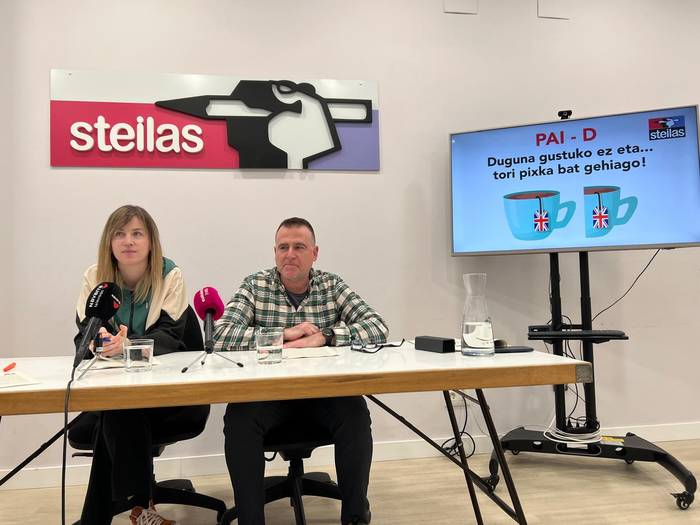Euskera in documents after the conquest
- Fernando Maiora Mendia has been swimming in the archives of Navarra for years in search of history and Euskera. Among other things, collect the nicknames in Euskera, the Basque past in Orbaibar and Artajona, the history of Tafalla… With Zoria by your side, you have seen his work in a bookstore in the County of Pamplona. It’s the beginning of reading…
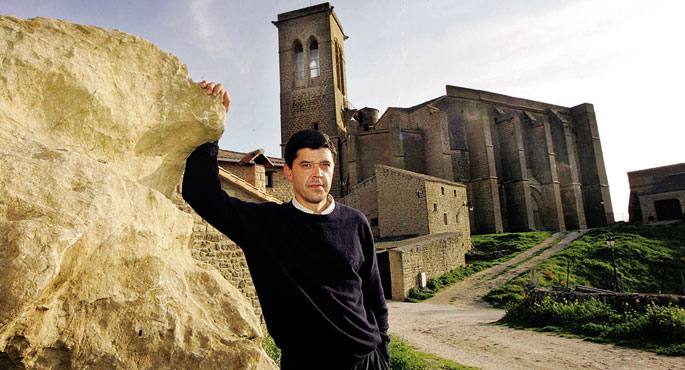
“The aim of this work has been to show the material that can help the research on Basque in the past. From Heaven it is known that the Basque language has not been a written language, at least they have considered it, and this has necessarily put the experts in terms of toponymy, with scientific rigor. As a cultured language, the writers wrote in Spanish what the witnesses of each other said in Basque. On more than one occasion, the scribes will say that this kind of witness spoke in Basque, but they will always transcribe it in Spanish. In the old documents there are countless examples.” In a document collected in Pamplona in 1595, Maiora reads: “You dare to give the saying Peter of Landa in bashless language such words, Catherine, Mr. Magallon is old and Vm. And that it was a sin to cheer, and that it was better for a son or a daughter to hiss..."
In the same style, he has read in a statement by Etxarren Girgillano of 1613: “Joana de Liçaberria, accused, began to dezir coplas in basarroçe, moving to the book Maria Martin de Abarçuça, which is understood with the quexante (cure) and walked behind the rincon in a corner...”.
Maiora has recorded these files and so many others in search of the Basque footprints that appear in documents of the past. The author has analyzed the Archivo Real y General de Navarra, the Archivo del Juigado de Tafalla, the Municipal Archives of Artajona and Tafalla and the Ecclesiastical Archive of Artajona and has recovered very valuable testimonies. “According to the data we have obtained, I can say that the city is the one that provides the most information, and that Euskera is the language of most people, in the sixteenth and seventeenth centuries. for at least centuries. Those who did not speak in that language were, for the most part, alien to the Kingdom, especially to Castile.” And as Maiora gives an example, here's one: “Graciana de Licaso, raised by Garcia de Orcoyen, miller. oyo decided to Leon de Garro, quexante, with the saying Garcia, this tanante not all words to say that romane... more than I hear say and that the baso that Garcia in the basin e...”
Border of criminals
The Mayor reminds us that the old border of the Malefactors disappeared from 1512. As for this front, in 1200 Castilla conquered Álava and Guipúzcoa. Until then, geography had not ceased: it was a people, a language, a way of life. From then on, a new limit was established in the south of Álava and currently in Gipuzkoa. But there was no peace. Castile-Refungal: It attacked the forties of Gorriti, Auza and Ataun, it was the battle of Beotibar, burned Castilla a Hernani and Berastegi, stole cattle or cattle, murdered bankers, criminal operations appeared in the territory… Castilla imposed its interests together with the help of the local lords, distinguishing identities: Navarros on one occasion, Guipuzcoa. After the conquest of 1512, it also changed the role of the fortifications of the interior of Navarra. Such is the case of Amaiur, who went from being a tower of seven soldiers to becoming a fortress of 50 soldiers: before, his goal was to monitor the passage; then, the restored Castle of Amaiur will focus on preserving the hegemony of Castile, extending its strength.
The disappearance of the border of criminals led to the spread of soldiers and related persons everywhere. There was no lack of fighting and fighting between those who were neighbours and those who had just arrived with the conquest. Among his testimonies are the documents that account for the linguistic situation. “First speaking, Martin de Cuasti, Vezino de Hiça, Juanes de Arteta, Vezino de Cuasti, Marti de Oreyen, Vezino de Hiça, argues that mere vascongados and the adverse that does not understand me Castilian but speaks. Provar I understand that the three witnesses for biking as biben on the outskirts of the city, even if they do not abbreviate Castilian, see it in Spanish…”. They had Euskera as a language, but in the case against the stranger, it can be seen that they understood Spanish through their relationships with those from outside. According to Maiora, the burglars also multiplied in Pamplona, the Spanish could be heard more and more, and there were ups and downs in discussions and discussions. One such Antonio Errera, from the company of Captain Campuzano, has had a fight with one of his wives, fire has been set on and the neighbours have ordered Errera to leave her alone. The dispute is about to take place. At the time of the witness's testimony, the witness is incapable: “... but because they abbreviated in bascuence, this witness does not save if he is spurred by words, because he does not understand the basconic language.” The case dates back to 1580, according to Fernando Maiora himself.
After the conquest, Castile began to implement its institutional apparatus. It was about exercising hegemony and bringing it into society. Notaries, soldiers, merits and bailiffs… They were foreigners, coming to punish the natives. However, it is known that the school has been the most effective way to put the people on the wrong path of Castilian. According to Maiora, one of the causes of the loss of Euskera was the entrance of the Castillan teachers in Navarra. They left the native language and went abroad. An example of Agustín Carrasco, teacher of the first letters in Arraiza, Zabascene and Belascoain. For example, Martin Artaiz, of Arraiza himself, took Carrasco as a chastity, ill-come and long-tail. When it comes to inventing insults and insults, the pearls of Castillean, Heretic, Jewish and similar often appear. That was more than a cultural shock, it was a conquest: strangers had imposed themselves on the forced administration, foreigners in the disputes that used to arise in everyday life.
The Basque of Juan Pascoal, Treviño
On the other hand, the documents not only know the presence of the Basque Country, but are also testimonies of dialects, at least in function of the direct perception of the speakers. Maiora has gathered the testimonies of Uroz-Lizoain, Artajona and Goizueta. In them it can be said that “...it supposes an emphasis in the way of speaking the bascuenca, which would be from the village of Goizueta…”. As for the Euskalkis, these documents also include the sounds of Álava. Among them is one called Juan Pascoal. He had to answer a question from another soldier: “… I ask him where it was natural and he answered him that from Medina del Campo and woe at a certain time, seeing that he opened well basarroçe, he asked him where he was and answered him that he hated Trevino and again, from ay to time, I ask him where he hera and answered him, that he hated next to Vitoria…”.
Another has also been asked by Juan Pascoal. Juan Fernández Yarca spent three months in Sangüesa next to that Pascoal, but “… he doesn’t know where it is natural [witness Juan Pascoal]… he tells him that hera nabarro, answered the saying Juan Pascoal that was Spanish and in Trebino has very tense his father and mother and that later he joined the company already, as he who understands that…
No third soldier has been able to make known the situation in Treviño. He certainly heard that he said: “… that it is natural from Trebino and other bezes of Greño, to a league of Salbatierra and that from what this witness the Vasconic language, he suffered that his vascuence from said Juan Pascoal, is of azia the land of Amescoa and not from the part where the dize…”.
In short, we will read that they say “Juan Pascoal de Tribino”, with the precision of Pascoal himself: “… and tell us that it is not from Tribino, but from the place of Arrilucea”, and as we know, Arriluzea is still a town of Treviño. The Basque, according to these testimonies of 1558, was his son Juan Pascoal.
Insults and insults
When people are angry, they get warm and then they have in their language what they don't have to say. Even before now, the testimonies of the 16th century are a sign of this, as in Basque, and in Spanish, they used to begin to say hello. The ones of Bidaurreta, of 1547, are some of the ones gathered in the archives of Maiora: “... that witness by and folded vezes has heard him swear and blaspheme the said defendant (...) in commencement and in every possible way, that he does not swear and swear by oath of God and body of God and by the blood of God and many other oaths in bascuence.”
Insults, cocks, words and intense conversations.
Bellako tzarra, bellako gaiztoa, puta hordia, apez-alaba, likitsa, puta gaiztoa, ardo-saskia, ardo-kopa, azeria, hordia, azerikumea, erroi tzarra, ustela, tripandia, frantxot, gabatxo, doilor txarra, ozar likitsa, ozar tzarra, zimurra, zuhurra, andurra, adaburu xaharra, traidore semea, putasemea, kokina, azkon-larrua, frai zikina, agot zahar hori, kozkoronbilo, etorki gaiztoa… eta hau eta hura, amaigabeko erretolika ageri da dokumentuotan. Euskaraz erranak ziren, notario arrotzek konprenitu ez zituztela beren belarriaren arabera transkribatzen zituztenak paperean. Euskara, ahozkoan bada ere, bizi-bizirik zegoen frogak.
Fernando Maiora Mendia ez da hasiberria ikerketan, ez euskararen lekukotasunen bilketan ere. Zorigaitzez, autoedizioak ditu ezagutzen dizkiogun liburuak, eta Iruñea, Lizarra, Erriberri, Tafalla, Barasoain, Puiu eta Gareseko zenbait liburudendatan baizik ez ditu jarriak salgai. Zortzi urte dira aldizkari honen orrialdeetan azaldu zenetik, artean 1800. urtean Artaxoako gazteak euskaraz mintzo zirela erranez, eta ildo berean ari da lanean. “Nafarroako gezurrezko historia ari zaizkigu kontatzen. Artxibategietara etorri eta benetako historia atera beharra daukagu... Ahal izan dudana baino ez dut egin nik. Artxibategietan paper zahar artean bila jarraituko dut, ea Nafarroako historia hobeto ezagutzeko zerbait topatzen dudan”. Hala zioen orduan, eta aurkitu du hoberik, XVI. mendetik hona Nafarroan izan diren prozesu juridiko-administratiboak idatziz jaso direnez, Maiorak badu nora jo. Eskuetan dugun Reino de Navarra. Euskera. Injurias, coplas, frases (2011) honetan, 1441ean hasi eta 1891 bitarteko agiri zaharretan ikusi dituen euskararen lekukotasunak bildu ditu. Irakurri ahal izan dugunez, euskara bizi-bizirik zegoen herrialdean XVII. mende arte, hala Tafallan nola Artaxoan, Baldorban eta Baztanen, Oltzan eta Ultzaman, eta Aezkoa, Ibargoiti, Izarbeibar, Imotz, Etxauri, Arakil, Larraun, Erro, Ameskoa, Iza, Esteribar eta bertzetan.
Maiatzaren 17an Erriberako lehenengo Euskararen Eguna eginen da Arguedasen, sortu berri den eta eskualdeko hamaika elkarte eta eragile biltzen dituen Erriberan Euskaraz sareak antolatuta
We have had to endure another attack on our language by the Department of Education of the Government of Navarre; we have been forced to make an anti-Basque change in the PAI program. In recent years, by law, new Model D schools have had to introduce the PAI program and have had... [+]
Prentsaurrekoan, maiatzaren 17an ospatuko duten Erriberako Euskararen Egunaren inguruko argibideak eman dituzte. Ume, gazte zein helduentzat zuzendua izango da. Ekimena, Erriberan egiten diren ekimenetan indarrak biltzeko eta euskararen normalizazioaren alde saretzeko... [+]
Nafarroako Ikastolen Elkarteak lehendakari berria du. Oier Sanjurjok hartu dio lekukoa Elena Zabaleta Andresenari. Beste zazpi kide izanen ditu alboan Sanjurjok.
Ez dira gutxi azken boladan euskara bere onenean ez dagoela eta bere transmisioa bermatuta ez dagoela ohartarazten ari diren ahotsak. Bestetik, inork ez du ukatzen hezkuntzak ezinbesteko betebeharra duenik euskara eta euskal kulturaren biziraupenerako. Erronka estrategikoa... [+]
Iruñeko haur eskoletako zuzendariek, EH Bildu, Geroa Bai, Zurekin Nafarroa eta PSNren arteko akordioa kritikatu dute. “Murgiltze ereduaren alde egin dugu beti, baina inoiz ez da gure iritzia kontutan hartzen” salatu du Euskalerria Irratian, Garikoitz Torregrosa... [+]
Euskarazko eskaintza handitzeko akordioa erdietsi dute EH Bilduk, PSNk, Geroa Baik eta Zurekin Nafarroak
Plazara, AEK, Uda Leku, Dindaia eta Ebete antolakundeak Baionan elkartu dira Famili'on egonaldi ibiltariaren lehen edizioa aurkezteko. Hizkuntza mailaren arabera eskaintza bat edo beste egongo da eta haur zein gurasoentzat izango da udaberrian.
Administrazio Epaitegiak arrazoia eman dio EH Bilduk Lizarrako plantilla organikoaren hizkutnz profilen aurka jarritako helegiteari.









